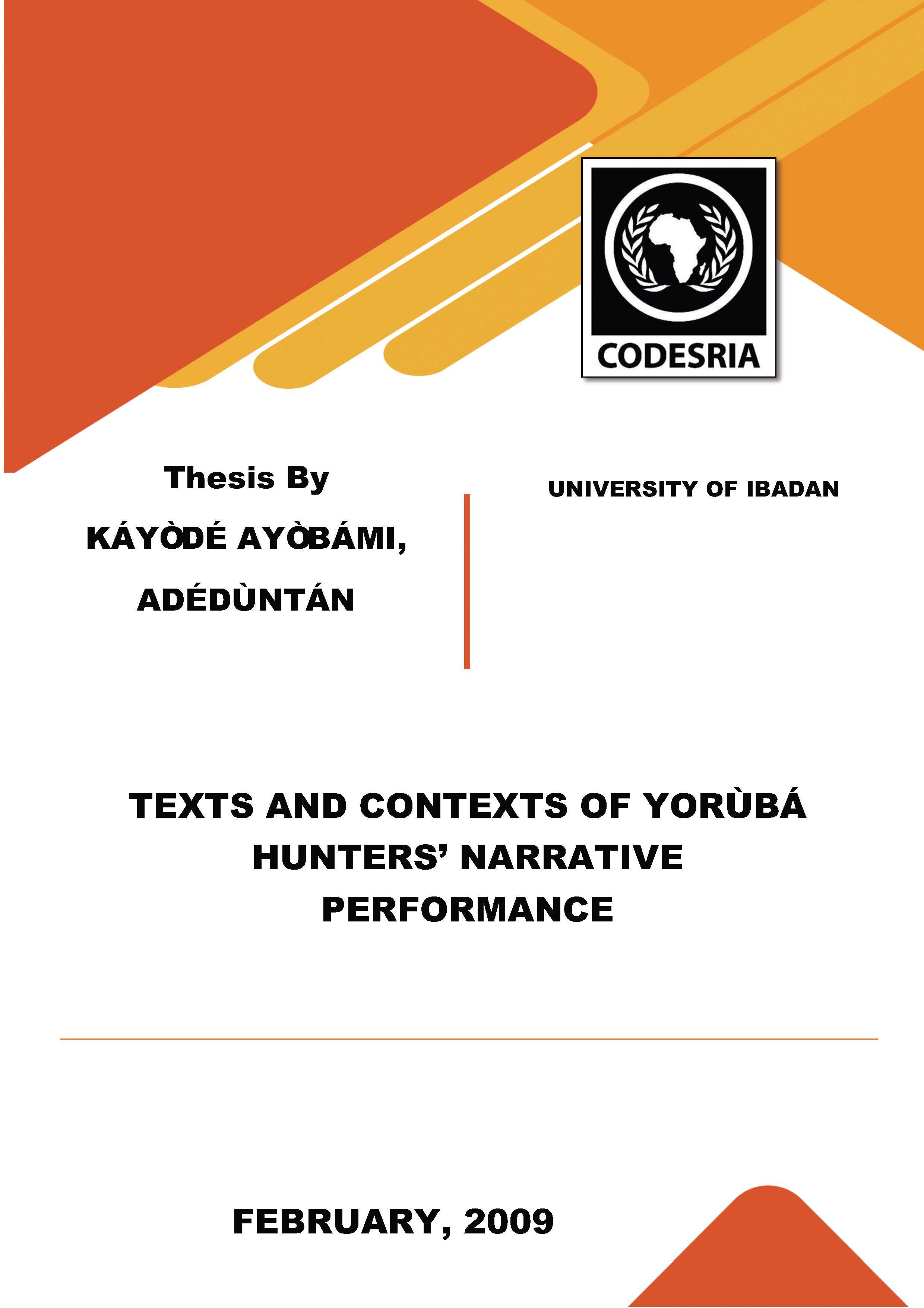TEXTS AND CONTEXTS OF YORÙBÁ HUNTERS’ NARRATIVE PERFORMANCE
Keywords:
performing arts --culture --yoruba language, narrative -- poetry -- textx -- contexts, NigeriaSynopsis
Research in African cultural and performance studies, long adapted to dealing only with normative forms, had been largely inadequate in the identification and assessment of artistic forms that were not traditionally identified as such. Studies in Yoruba culture and performance had focused predominantly on standardized forms such as ìjálá, ẹ̀sà, ìyẹ̀rẹ̀ and àlọ́ to mention just a few, and ignored the prevalent performance culture that convolved with everyday human routine. The drama, poetry and narrative bedded in such practices as hawking, preaching and conversation were not well researched into. Related to this was the problem of taxonomy that sometimes ignored the elastic nature of many African cultural sites. Models adopted by existing works were either outright inadequate or somewhat outmoded today as a result of exigent transformation and modification in the cultural practices. The narratives on the exploits of Yoruba hunters were used to establish the relevance of performance to cultural sites that were considered silent and banal. This assumed silence was especially highlighted in the case of the hunters’ exploits because of the cultural and professional ethic that forbade them to tell their stories at home.
The data were obtained from the hunters of the guinea savannah of Oke-Ogun area of Oyo State, and the rain forests of Oyo and Osun States. Between 2003 and 2007, 71 narratives, including live radio studio sessions of the hunters’ performance, were observed and recorded on video and magnetic tape. Certain aspects of allied activities such as hunting expedition, and Ògún worship and festival in which the hunters were prime participants were also studied. Nineteen hunters were individually interviewed. The study employed qualitative approach in the literary analysis of the data.
Yoruba hunters’ stories are told today and have even emerged as entertainment series on electronic media. The electronic media outgrowth of the hunters' narratives exemplified the dialectic of tradition and change in which the contemporary exigency necessitated a review and modification of norms. The hunters' narratives also provided an index to the Yoruba understanding and explanation of their world, a cosmology that negates the anthropocentric view of creation. In very literal sense, man, in this peculiar world, is equal actor with animal and nature spirits with whom he constantly contests and negotiates space. This worldview was found to have influenced the vision of even the modern literary artists such as D.O. Fagunwa and Amos Tutuola.
As mere conversational form, the narratives qualified as art in their own right. It encouraged a closer individual appraisal of texts and contexts of oral performance forms, an approach which helps to avoid pitfalls of generalization that characterized many attempts at describing the poetics of oral performance. However, more attention should be paid to the performative aspects of human activities which the literary and verbal arts purport to mimic in the first place.
Downloads






